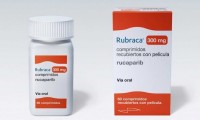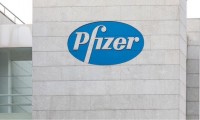-
After selling Rubraca, Clovis Oncology unveils CRL for potential label expansion
- Source: drugdu
- 206
- June 7, 2023
-
NICE recommends Bristol Myers’ heart drug Camzyos in UK
- Source: drugdu
- 245
- June 6, 2023
-
After nabbing historic RSV shot approval, GSK looks to boost US vaccination rates
- Source: drugdu
- 129
- June 6, 2023
-
Look out, GSK. Pfizer has its adult RSV vaccine approval and is raring to launch
- Source: drugdu
- 125
- June 5, 2023
-
Medicare details plan to cover Alzheimer’s treatments
- Source: drugdu
- 115
- June 4, 2023
-
Lawmakers look to crack down on Big Pharma tax breaks
- Source: drugdu
- 164
- June 3, 2023
-
Medicare holds firm on Alzheimer’s drug coverage policy
- Source: drugdu
- 105
- June 3, 2023
-
77.4% ORR! Abbisko to present the updated clinical phase Ib data of Pimicotinib (ABSK021) at the 2023 ASCO Annual Meeting
- Source: drugdu
- 132
- May 31, 2023
-
EU regulators recommend yanking authorization for Novartis’ sickle cell med Adakveo after phase 3 miss
- Source: drugdu
- 162
- May 30, 2023
-
Merck’s Keytruda, Novartis’ Kisqali face their moment of truth in early-stage cancers
- Source: drugdu
- 120
- May 30, 2023
your submission has already been received.
OK
Subscribe
Please enter a valid Email address!
Submit
The most relevant industry news & insight will be sent to you every two weeks.













